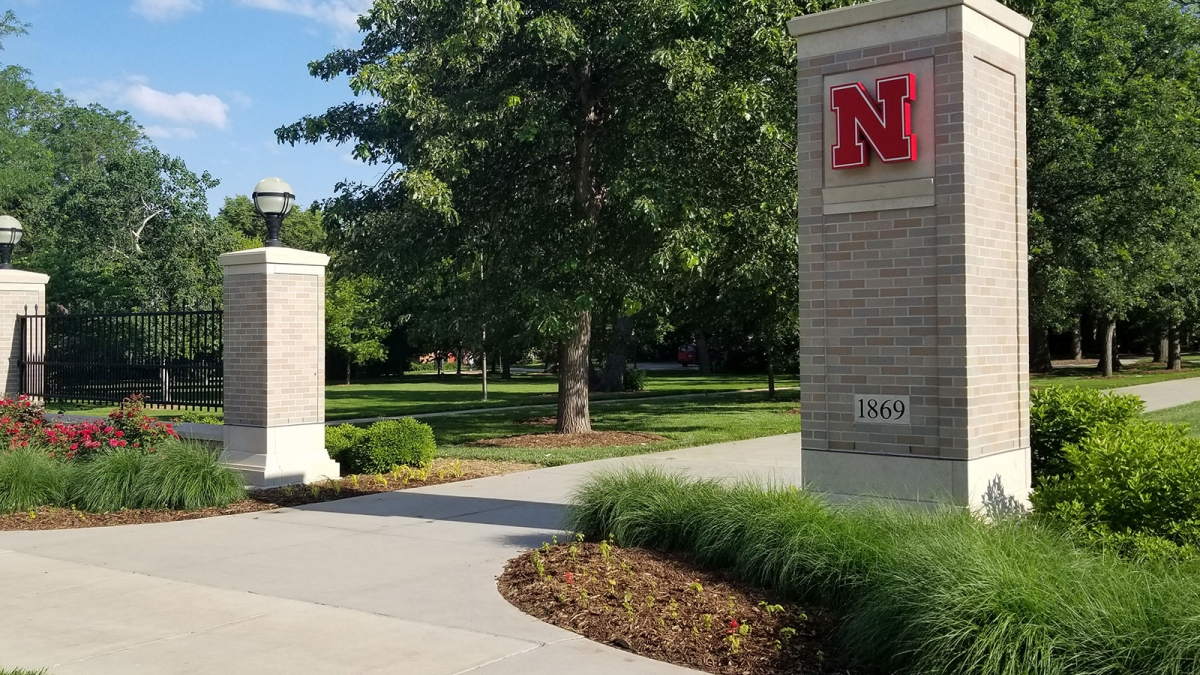
June 12, 2013
MEAD, Neb. — Agribusiness professionals and crop producers will take a close-up look at field conditions, research and techniques at the University of Nebraska-Lincoln's midsummer Crop Management Diagnostic Clinics July 17-18.
The UNL Extension clinics begin each day with 7:30 a.m. registration at the Agricultural Research and Development Center near Mead and start at 8 a.m. Participants will meet at the August N. Christenson Research and Education Building. Participants can attend one or both of the clinics as subject matter will be different each day.
Keith Glewen, UNL extension educator said, "Benefits of the crop management and diagnostic clinics include one-on-one attention, on-site plot demonstrations, interaction with other participants, discussions about cutting edge research and an opportunity to earn continuing education credits through Certified Crop Adviser (CCA) program."
The July clinics feature national corn specialist from Purdue University who also happens to be a native Nebraskan, Bob Nielsen. Glewen said, having the opportunity to have Nielsen share his experience and knowledge of corn production live in a cornfield, for many participants will be a once in lifetime educational experience.
Topics on July 17 include: Corn Crop Canopy, Light Interception, and Grain Yield; Corn Silage, An Efficient and Economical Use of Corn Residue; Update on Nematodes of Corn and Soybean; Crop Water Use; Making the Most of a Herbicide Application and Feeding a Growing Population in a Shrinking World: A Plant Biosecurity-Food Security Challenge.
Six Certified Crop Adviser credits (crop management – 1.5, pest management – 3.0, soil and water management – 1.0, and nutrient management – .5) have been applied for and are pending approval for this clinic.
July 18 clinic topics include: Sex in the Corn Field: What Really Goes On Out There?; Evaluating Efficacy of Tank Mixing Herbicides for Hard-to-Control Weeds in Corn; Feedlot Manure and Holding Pond Effluent: N Availability and Environmental Issues; Understanding the Benefits and Limitations of Current Pesticide Application Field Equipment; Crop Scene Investigation (CSI); and Atrazine in Surface/Groundwater.
Six Certified Crop Adviser credits (crop management – 1.5, pest management – 3.5, and nutrient management – 1.0) have been applied for and are pending approval for this clinic.
Early registration is recommended to reserve a seat and resource materials. Cost for one clinic is $160 for those registering one week in advance and $210 after. Cost for both clinics is $280 one week in advance and $320 after.
For more information or to register, contact the ARDC CMDC Programs, 1071 County Road G, Ithaca, NE 68033, call 800-529-8030, fax 402-624-8010, e-mail cdunbar2@unl.edu or visit the Web at http://ardc.unl.edu/training.shtml.
A special clinic focusing on physical, chemical and biological properties of soil and water will also be held on Aug. 28.
August clinic topics include: Physical, Chemical and Biological Properties of Soil and Water….The Cornerstone of the Human Race; Cover Crops for Improving the Soil; Infiltration Test and Organic Matter; Soil Temp., Electrical Conductivity, pH, N and P tests; Irrigation and Soil Water; Using Solvita Respiration Tests and N Flush; Soil Profile and Positioning of Landscape; and Management Considerations to Improve the Physical, Chemical and Biological Properties of Soil.
7.5 Certified Crop Adviser credits (nutrient management – 2.5 and water management – 5.5) have been applied for and are pending approval for this clinic.
UNL Extension is in the Institute of Agriculture and Natural Resources.
Keith GlewenExtension Educator
UNL Extension
800-529-8030
kglewen1@unl.edu
Sandi Alswager Karstens
IANR News Service
402-472-3030
skarstens2@unl.edu